In today’s digital age, having a strong online presence is crucial for any recruitment agency looking to attract top talent and stand out in a competitive market.
WordPress has become the go-to platform for many businesses, including recruitment agencies, due to its flexibility, ease of use, and vast array of customization options. Over 40% of all websites on the internet are powered by WordPress. This popularity means you’ll have access to a wealth of resources, themes, and plugins specifically designed for recruitment agencies.
In this comprehensive guide, we’ll walk through each step of creating your recruitment agency website, from choosing a domain name to marketing your finished site. Whether you’re a beginner or have some wordpress experience, you’ll find valuable insights and practical tips to help you build a professional and effective online presence for your agency.
WordPress Benefits
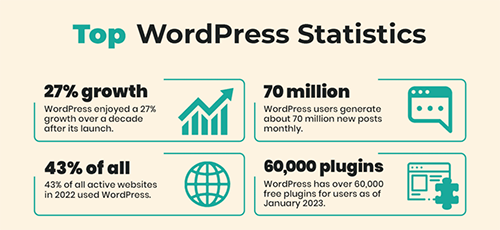
Before we dive into the step-by-step process, let’s explore why WordPress is an excellent choice for your recruitment agency website. WordPress offers several key advantages that make it particularly well-suited for the recruitment industry:
- User-friendly interface: WordPress is known for its intuitive dashboard, making it easy for you and your team to update job listings, manage applications, and publish content without needing extensive technical knowledge.
- Customization options: With thousands of themes and plugins available, you can tailor your website to match your agency’s branding and add specific functionality for job postings, candidate management, and more.
- SEO-friendly: WordPress is built with search engine optimization in mind, helping your agency’s website rank higher in search results and attract more potential clients and candidates.
- Mobile responsiveness: Most WordPress themes are mobile-responsive, ensuring your website looks great and functions well on all devices – a crucial factor in today’s mobile-first world.
- Scalability: As your recruitment agency grows, WordPress can easily accommodate your expanding needs, whether you’re adding new services, integrating with other tools, or handling increased traffic.
- Cost-effective: Compared to custom-built websites, WordPress offers a more budget-friendly solution without compromising on quality or functionality.
- Large community and support: With millions of users worldwide, you’ll have access to a vast community of developers, forums, and resources for troubleshooting and improving your site.
Now that you understand the benefits of using WordPress for your recruitment agency website, let’s move on to the first step in the process: securing your web hosting and domain name.
1. Get Web Hosting and a Domain Name
The foundation of your online presence begins with choosing a domain name and securing reliable web hosting. These two elements are crucial for establishing your agency’s identity on the web and ensuring your site performs well for visitors.
1.1 Choose a Domain Name
Your domain name is your website’s address on the internet. It’s the first thing potential clients and candidates will see, so it’s crucial to choose wisely. When selecting a domain name for your recruiting agency, consider these tips:
- Keep it short and memorable
- Use keywords related to recruiting if possible
- Avoid hyphens and numbers
- Opt for a .com extension if available
For example, if your agency is called “Top Talent Recruiters,” you might choose “toptalentrecruiters.com” or “ttrecruiters.com”.
1.2 Choose Web Hosting
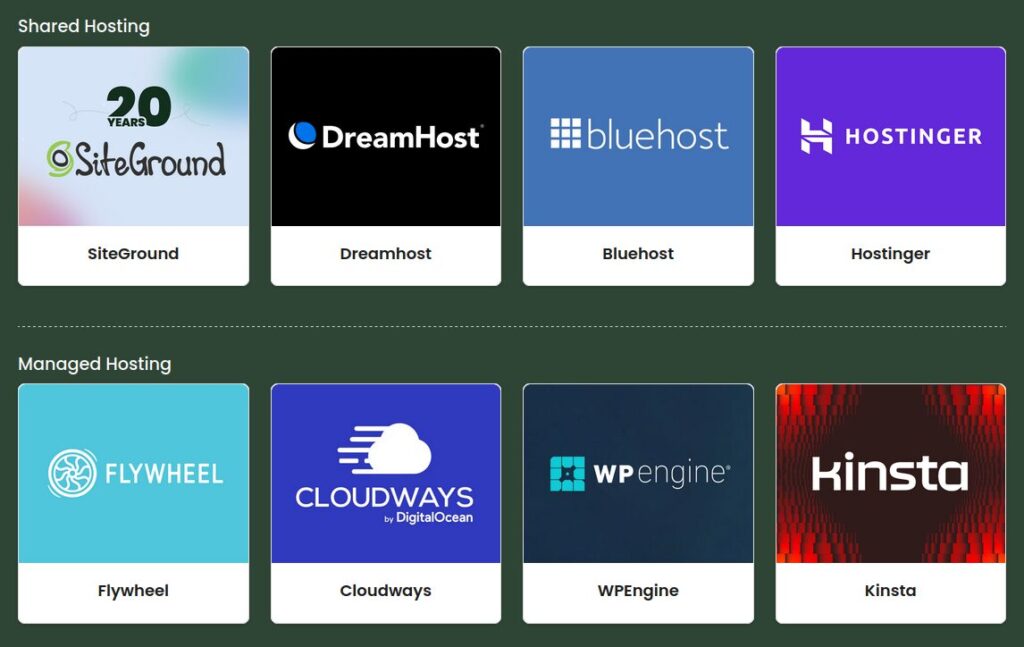
List of best shared and managed wordpress hosting providers
Web hosting is where your website’s files are stored and made accessible on the internet. When selecting a hosting provider for your recruitment agency website, consider the following factors:
- Reliability: Look for providers with high uptime guarantees to ensure your site is always accessible.
- Speed: Fast loading times are crucial for user experience and search engine rankings.
- WordPress compatibility: Choose a host that offers easy WordPress installation and optimization.
- Scalability: Ensure the hosting plan can accommodate your site’s growth over time.
- Support: Opt for providers with responsive customer support to help you resolve any issues quickly.
Some popular hosting options for WordPress sites include Bluehost, SiteGround, and WP Engine. Research different providers and compare their features and pricing to find the best fit for your agency’s needs.
1.3 Install WordPress
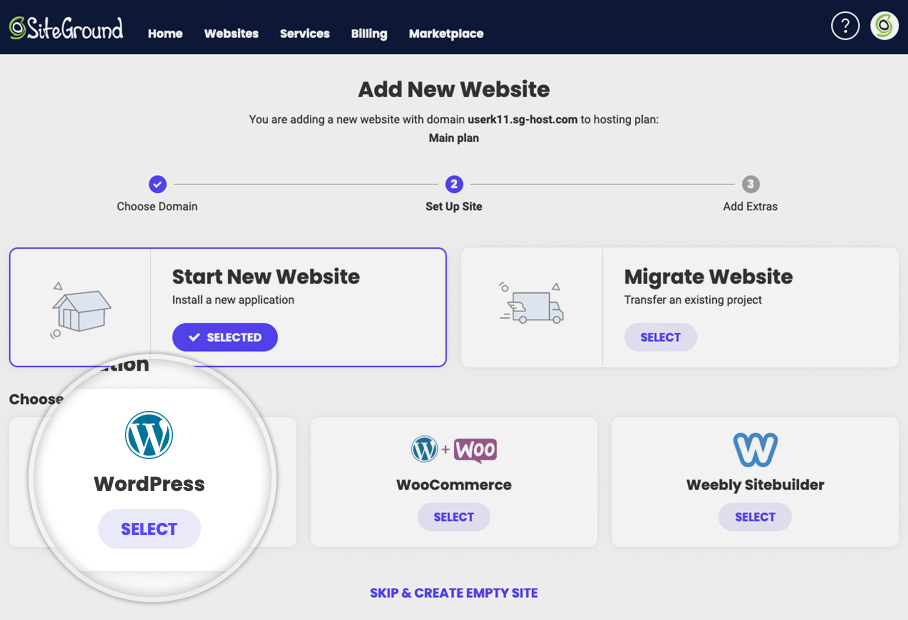
1-click wordpress install on siteground hosting
Once you’ve secured your domain name and hosting, it’s time to install WordPress. Many hosting providers offer one-click WordPress installation, making this process simple even for beginners. Here are the steps:
- Log into your hosting account
- Navigate to the control panel
- Look for the WordPress or Website section
- Click “Install WordPress”
- Follow the prompts to complete the installation
After installation, you’ll have access to your WordPress dashboard, where you can begin customizing your recruitment agency website.
In the next section, we’ll explore how to choose and install a WordPress theme that aligns with your agency’s brand and goals.
2. Find and Install a WordPress Theme
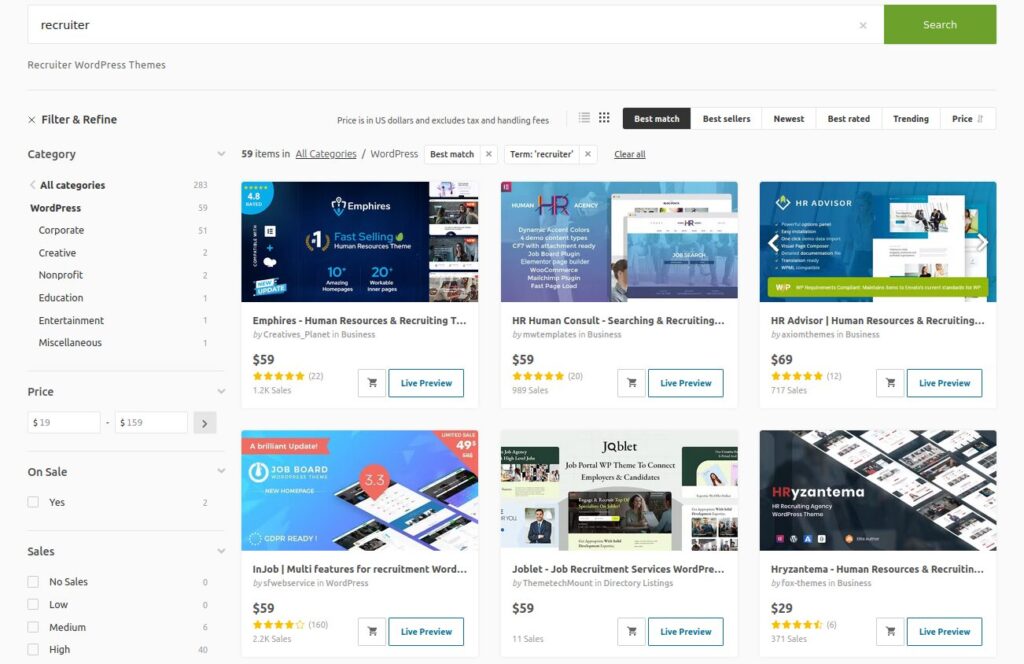
Premium recruitment wordpress themes on themeforest
Choosing the right theme for your recruitment agency website is crucial as it determines the overall look and feel of your site. A well-designed theme can help showcase your agency’s professionalism and make a strong first impression on potential clients and candidates.
When selecting a theme, consider the following factors:
- Recruitment-specific features: Look for themes designed specifically for recruitment agencies or job boards. These often include features like job listing management and candidate application forms.
- Customization options: Ensure the theme allows you to easily adjust colors, fonts, and layouts to match your agency’s branding.
- Mobile responsiveness: In today’s mobile-first world, your theme must look great on all devices.
- Loading speed: Choose a lightweight theme that won’t slow down your website.
- Regular updates: Opt for themes that are frequently updated to ensure compatibility with the latest WordPress version and security standards.
You can find suitable themes by searching WordPress.org’s free theme directory or exploring premium theme marketplaces like ThemeForest. Some popular recruitment agency themes include Jobify, Workscout, and Recruitment Agency by TemplateMonster.
Once you’ve chosen a theme, installation is straightforward:
- From your WordPress dashboard, go to Appearance > Themes.
- Click “Add New” and either upload your downloaded theme file or search for it in the WordPress theme directory.
- Once uploaded, click “Activate” to apply the theme to your site.
After activation, explore the theme’s settings and customization options to tailor it to your agency’s needs. Many themes offer a guided setup process to help you get started quickly.
3. Install Plugins
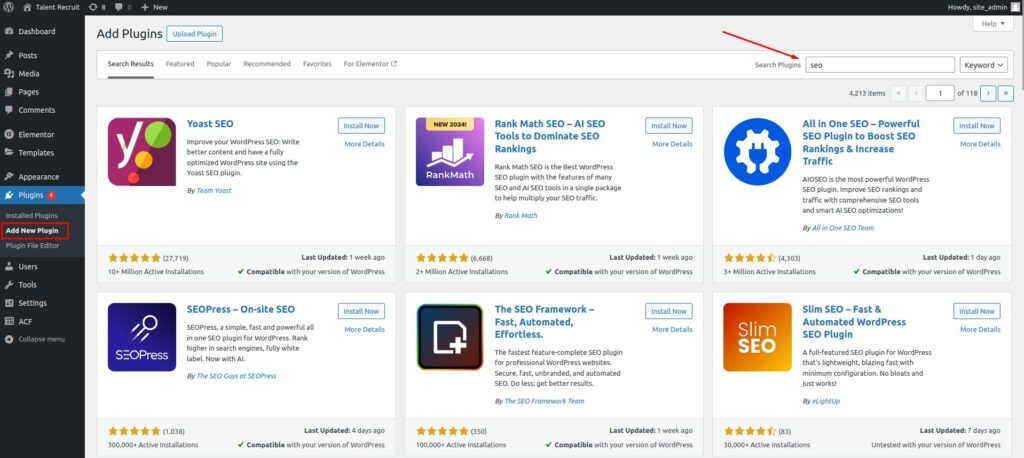
Plugins are essential tools that extend the functionality of your WordPress site. For a recruitment agency website, certain plugins can significantly enhance your site’s capabilities. Here are some types of plugins you might consider:
- SEO plugins: To optimize your site for search engines. Yoast SEO and Rank Math are widely used options.
- Forms plugins: For creating contact forms and application forms. Consider Contact Form 7 or WPForms.
- Security plugins: To protect your site from potential threats. Wordfence and Solid Security are reputable choices.
- Caching plugins: To improve your site’s loading speed. WP Rocket and W3 Total Cache are popular options.
- Job Board plugins: These allow you to create and manage job listings easily. Popular options include WP Job Manager and Simple Job Board.
To install a plugin:
- Go to Plugins > Add New in your WordPress dashboard.
- Search for the plugin you want or upload a plugin file if you’ve purchased a premium plugin.
- Click “Install Now” and then “Activate” to enable the plugin.
While plugins can greatly enhance your site, it’s important not to overload your site with too many. Each plugin can potentially impact your site’s performance, so choose wisely and only install what you truly need.
4. Import Demo Content (Optional)
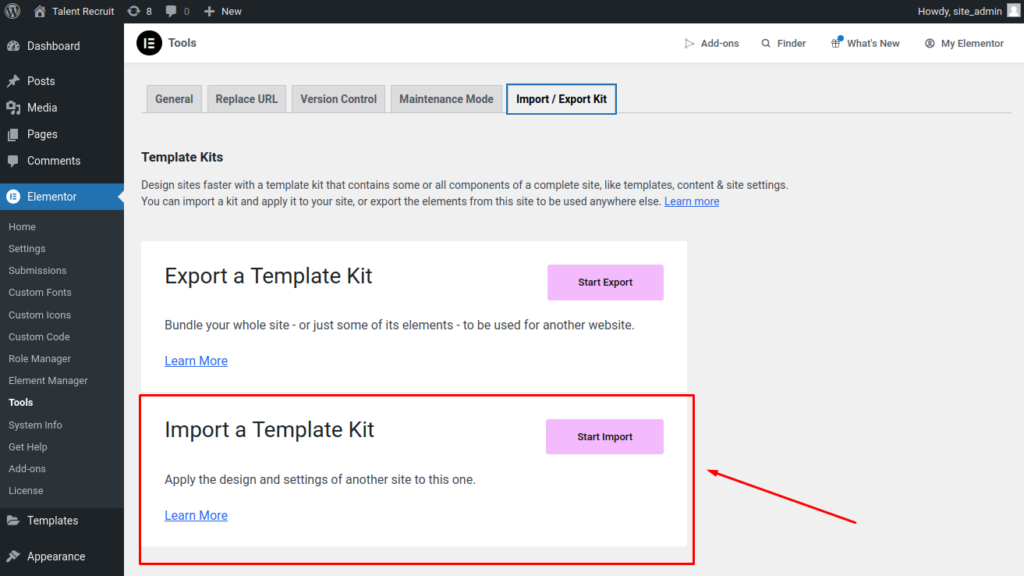
Demo content import for elementor page builder
Many Premium themes come with demo content that you can import to get a head start on your site’s design. This can be particularly helpful if you’re new to WordPress or want to save time on initial setup.
Demo content typically includes pre-designed pages, sample job listings, and placeholder content that you can easily customize. To import demo content:
- Check your theme’s documentation for instructions on importing demo content.
- Usually, you’ll find an option in your theme’s settings or a separate importer plugin.
- Follow the prompts to select and import the demo content you want.
After importing, go through each page and customize the content to reflect your agency’s information and branding. Remove any unnecessary demo content and replace placeholder text and images with your own.
While demo content can be a useful starting point, your goal should be to create a unique site that stands out from competitors. Use the demo as inspiration, but don’t be afraid to make significant changes to truly represent your agency’s brand and services.
5. Configure WordPress Settings
Proper configuration of your WordPress settings is crucial for ensuring your recruitment agency website functions smoothly and securely. Let’s go through some key settings you should review and adjust:
General Settings: Navigate to Settings > General in your WordPress dashboard. Here, you can set your site title, tagline, and timezone. Make sure your site title reflects your agency’s name and the tagline briefly describes your services.
Reading Settings: Under Settings > Reading, you can choose what appears on your homepage. For a recruitment agency, you might want a static page showcasing your services rather than your latest blog posts.
Discussion Settings: If you plan to allow comments on your job listings or blog posts, review the options under Settings > Discussion. Consider moderating comments to maintain a professional atmosphere on your site.
Permalink Settings: In Settings > Permalinks, choose a URL structure that includes keywords relevant to recruitment. The “Post name” option is often a good choice for SEO purposes.
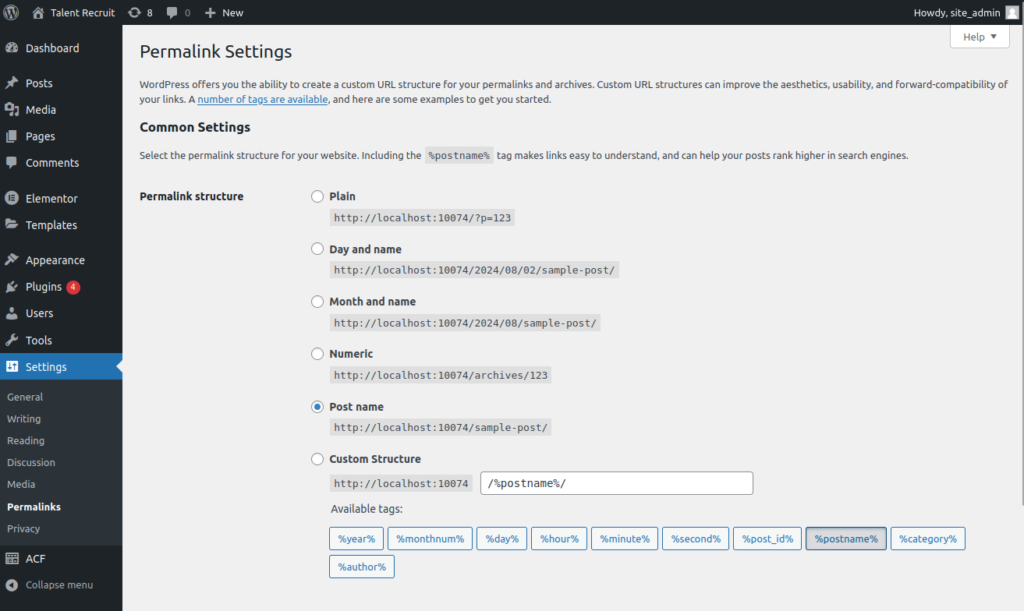
Privacy Settings: With data protection laws like GDPR in place, it’s crucial to have a privacy policy. Go to Settings > Privacy to create or update your privacy policy page.
Remember to click “Save Changes” after adjusting any settings. These configurations lay the groundwork for a well-functioning recruitment website.
6. Create Pages
Now it’s time to create the core pages for your recruitment agency website. Here are some essential pages you should consider:
Home Page: This is your site’s face. Highlight your agency’s unique selling points, feature top job listings, and include clear calls-to-action for both employers and job seekers.
About Us: Share your agency’s history, mission, and values. This helps build trust with potential clients and candidates.
Services: Detail the recruitment services you offer, whether it’s executive search, temporary staffing, or industry-specific recruitment.
Job Listings: If you’re using a job board plugin, this page will likely be automatically created. Ensure it’s easily accessible from your main menu.
Candidate Resources: Provide valuable information for job seekers, such as resume tips or interview preparation advice.
Employer Resources: Offer insights for employers on topics like hiring trends or retention strategies.
Contact Us: Include your agency’s contact information and a contact form for inquiries.
To create a new page:
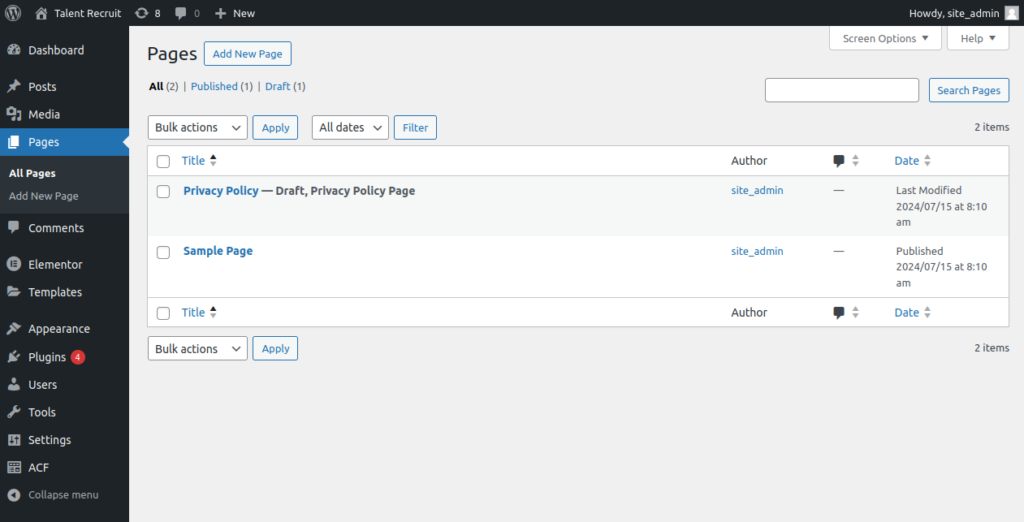
- Go to Pages > Add New in your WordPress dashboard.
- Give your page a title and add your content.
- Use the block editor to add text, images, and other elements to make your page engaging and informative.
- Set a featured image if your theme supports it.
- Click “Publish” when you’re ready to make the page live.
Remember to include clear calls-to-action on each page to guide visitors towards contacting you or submitting job applications.
7. Set Up Your Menu
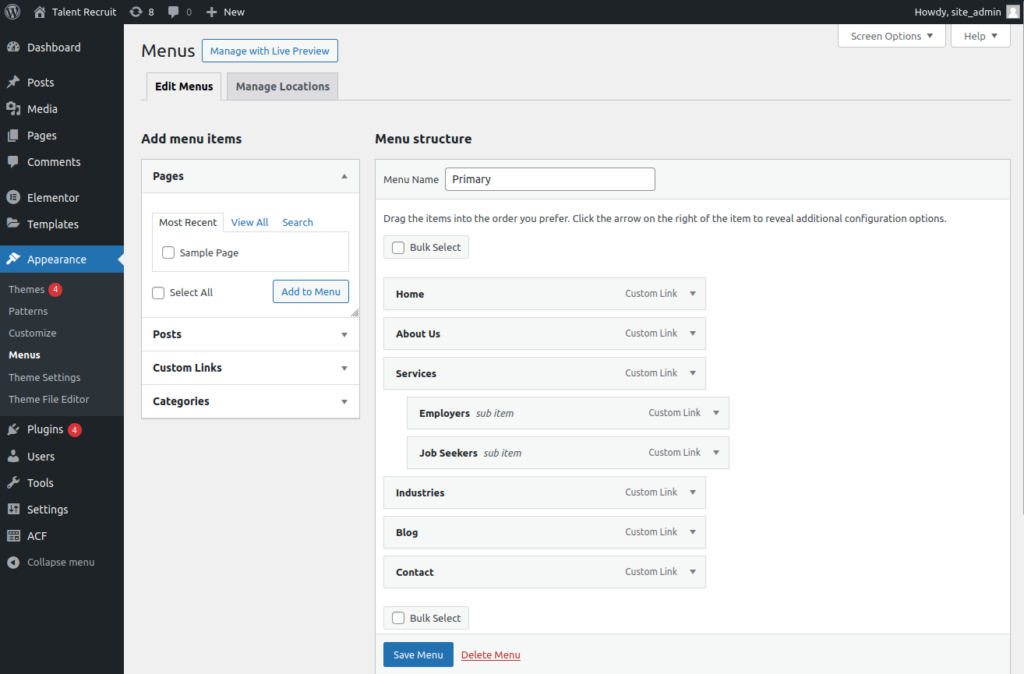
A well-organized menu is crucial for helping visitors navigate your recruitment agency website. Here’s how to set up an effective menu structure:
- Go to Appearance > Menus in your WordPress dashboard.
- Click “Create a new menu” and give it a name (e.g., “Main Menu”).
- Add your created pages to the menu by selecting them from the left panel and clicking “Add to Menu”.
- Arrange the menu items by dragging and dropping them into the desired order.
- You can create dropdown menus by dragging menu items slightly to the right to make them sub-items.
- Once you’re happy with the structure, select the display location (usually “Primary Menu”) and click “Save Menu”.
Ensure your menu is intuitive and helps both employers and job seekers quickly find the information they need. Consider using dropdown menus to group related pages and keep your main menu clean and uncluttered.
8. Write Your First Blog Post (Optional)
Starting a blog on your recruitment agency website can be an excellent way to showcase your industry expertise, improve your SEO, and provide value to both employers and job seekers. Here’s how to create your first blog post:
- Go to Posts > Add New in your WordPress dashboard.
- Choose a topic relevant to your audience. For example, “Top 5 Interview Tips for Job Seekers” or “How to Attract Top Talent in a Competitive Market”.
- Write an engaging title that includes your main keyword.
- Use the block editor to write your content. Break it up into short paragraphs and use subheadings for better readability.
- Add relevant images or infographics to make your post more visually appealing.
- Set categories and tags to organize your content.
- Preview your post and make any necessary adjustments before publishing.
Remember, consistency is key in blogging. Try to establish a regular posting schedule, even if it’s just once or twice a month. Quality always trumps quantity, so focus on providing valuable, well-researched content that addresses your audience’s needs and concerns.
Consider writing about industry trends, job search tips, or success stories to provide value to your audience.
9. Market Your Site
Now that your recruitment agency website is up and running, it’s time to get the word out. Here are some effective marketing strategies to consider:
1. Search Engine Optimization (SEO): Optimize your website content for relevant keywords. Use your SEO plugin to guide you in optimizing each page and post. Focus on local SEO if you serve a specific geographic area.
2. Social Media Marketing: Create profiles on platforms where your target audience is active, such as LinkedIn for professional networking. Share your job listings, blog posts, and industry insights regularly.
3. Email Marketing: Build an email list of clients, candidates, and industry contacts. Send regular newsletters with job opportunities, recruitment tips, and company updates.
4. Content Marketing: Consistently create valuable content that addresses the needs and interests of both employers and job seekers. This could include blog posts, whitepapers, or video content.
5. Networking: Attend industry events and job fairs to promote your agency and website. Consider speaking at events to establish yourself as an industry expert.
6. Paid Advertising: Consider using Google Ads or social media advertising to reach a wider audience. You can target specific demographics and locations relevant to your recruitment niche.
7. Partnerships: Collaborate with other businesses or organizations in your industry. This could involve guest blogging, co-hosting webinars, or cross-promotion on social media.
Regularly analyze your website traffic and marketing efforts to understand what’s working and what needs improvement. Tools like Google Analytics can provide valuable insights into your site’s performance and visitor behavior.
Conclusion
Creating a WordPress website for your recruitment agency is a powerful way to enhance your online presence and streamline your operations. By following these steps, you’ve laid a solid foundation for a professional, functional website that can attract both clients and candidates.
Remember, your website is not a “set it and forget it” project. Regularly update your content, add new job listings, and keep your blog fresh with relevant posts. Stay responsive to inquiries that come through your site and continuously seek ways to improve the user experience.
As the recruitment landscape evolves, so should your website. Keep an eye on industry trends and emerging technologies that could enhance your online presence. With dedication and consistent effort, your WordPress recruitment agency website can become a valuable asset in growing your business and connecting top talent with great opportunities.
Do you have any questions about setting up or managing your recruitment agency website? Feel free to ask in the comments below, and I’ll be happy to help!
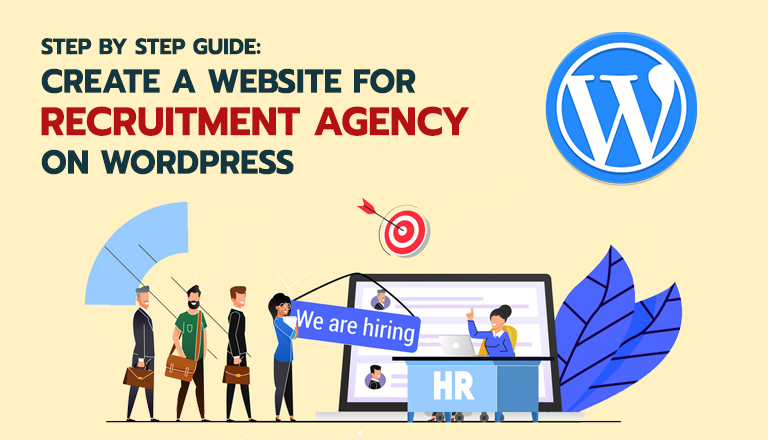
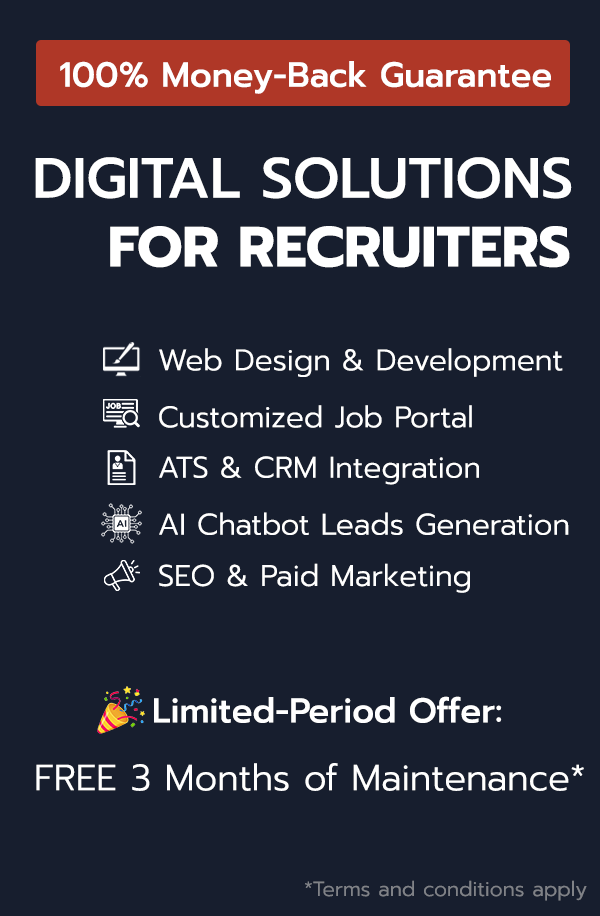




Share Your Thoughts: